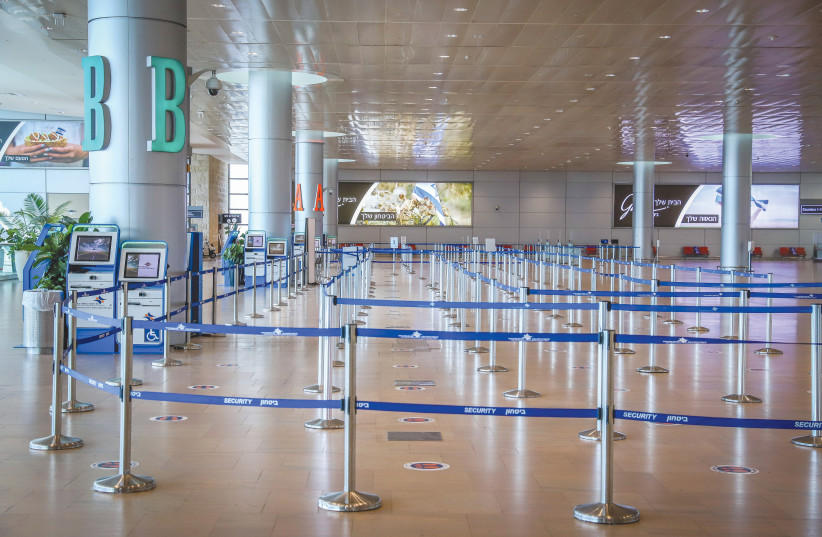Israel’s Ben Gurion Airport will temporarily close Terminal 1 starting Friday, extending until March 2025 due to the sharp decline in air travel since the October 2023 Hamas attack on Israel and the resulting war.
The Israel Airports Authority (IAA) reported daily passenger numbers dropping to just 20,000, with only limited domestic flights to Eilat still using Terminal 1. International flights will operate solely out of Terminal 3, affecting budget airlines that rely on the lower operating costs of Terminal 1.
Several budget carriers have halted flights to Tel Aviv, including Wizz Air, Ryanair, and easyJet, which announced they would not resume service until early 2025.
Mark Feldman, director at Diesenhaus and a longtime travel industry expert, told The Media Line there was no need to keep Terminal 1 open without incoming traffic.
Feldman noted that several international flights are still operating, including five daily flights to Paris and five to Dubai. A few airlines, such as Etihad and Emirates, which have lucrative full flights for both passengers and cargo, have benefited from the situation. “They have locked up the East,” he said.

'Temporary ceasefire won't cut it'
Most carriers Feldman spoke to said they would be willing to resume flights to Israel, but only after a complete ceasefire. “A temporary cease-fire won’t cut it,” he noted.
He observed that ticket prices have skyrocketed due to limited flights and high demand. “Two years ago, economy tickets from Israel to New York cost around $800 during this low season. Today, they’re at least $2,000.” The industry overall has seen a 50% increase in nonstop fares.
Feldman also addressed hotel vacancies, predicting that more hotels across Israel will close. “No one is going to the north,” he said.
Meanwhile, Uzbekistan’s Centrum Air postponed its planned Tel Aviv–Tashkent service to November 21, joining other carriers like Flydubai, British Airways, Bulgaria Air, and Air Seychelles in delaying or suspending flights due to security concerns.
